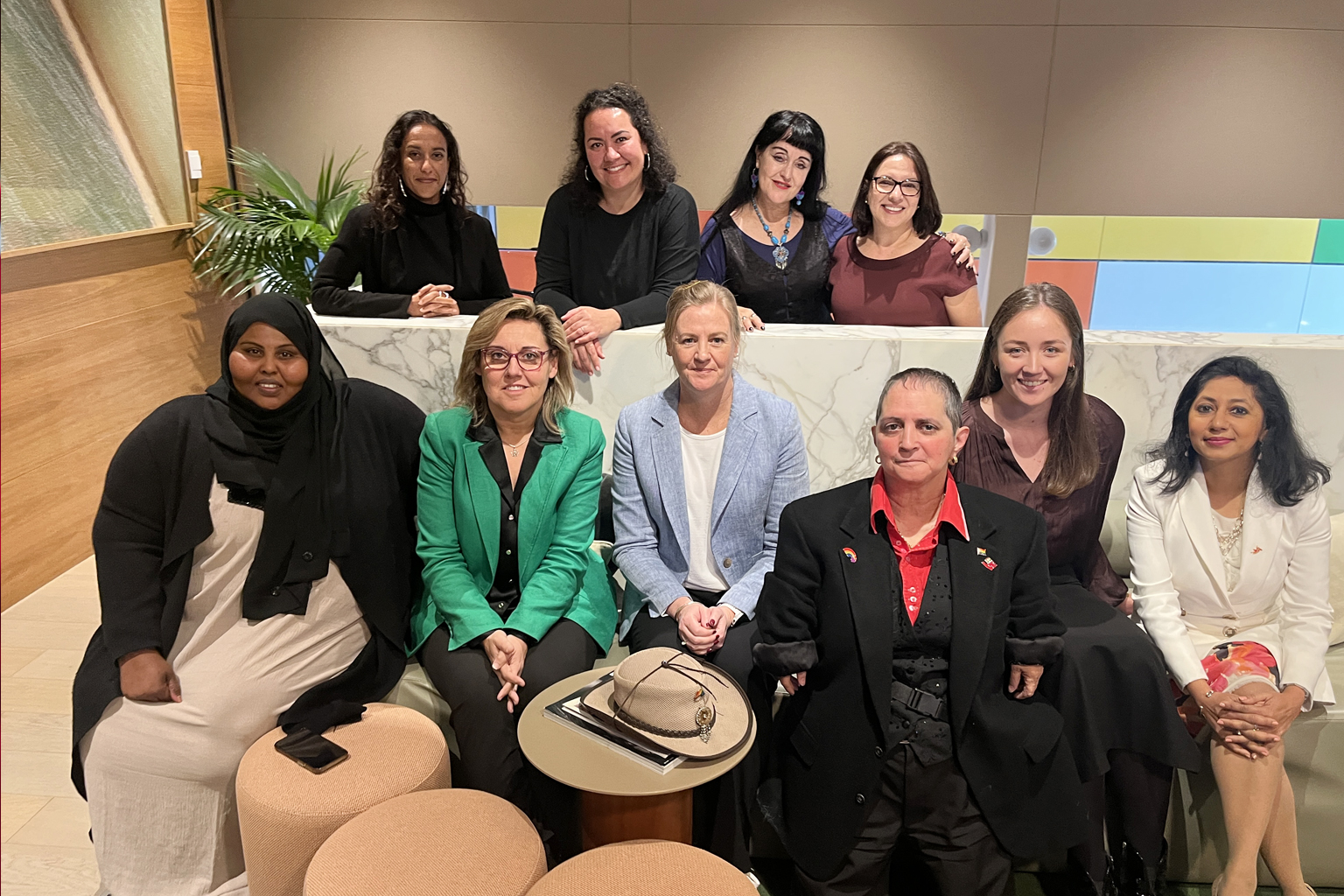11 August 2023
For Margherita Coppolino, the first time she every truly felt like an equal person in sport was when she competed in the World Dwarf Games.

Born to a Sicilian mother who migrated to Australia in 1959, Coppolino, who was born with a short statured condition, made an immediate impact bagging two gold and three silver medals in powerlifting and boccia.
“It’s probably the only sport where I’m equal apart from the Paralympics,” Coppolino said, as she reflects on her incredible achievements in 2013 and 2017.
She’s hoping that will all change thanks to work underway at the Australian Sports Commission (ASC) to develop a National Intersectionality Framework for Australian sport.
Intersectionality recognises that individuals have multiple dimensions of identity, such as race, gender, sexuality, disability, and socioeconomic background, which intersect and create unique experiences and challenges.
The Framework will have a focus on leadership and governance in the sector and aims to create sporting environments that are inclusive, equitable and responsive, and embed intersectional thinking into leadership and governance processes.
The Framework will be the first of its kind and codesigned with the sector like Australia’s High Performance 2032+ Sport Strategy and National Sport Participation Strategy.
Both strategies acknowledge the importance of diversity, equity and inclusive design to deliver the best sporting outcomes for all Australians and this project will help bring this work to life.
'The idea of a national approach that would be much more inclusive is the most exciting piece of work I could think of.'
Rana Hussain
Coppolino joins a 12-member Working Group overseeing its development and brings many hats, or lenses to the role.
In addition to representing Australia on the world stage, she’s a photographer, has sat on several Boards in Executive and Non-Executive positions and was appointed Co-Chair of the International Lesbian, Gay, Bisexual, Trans and Intersex Association - Oceania region (ILGA Oceania) and Director of the ILGA World Board in 2022.
“What’s really exciting about the ASC doing this project is that it allows every individual who works in local sport or volunteers on the Board to get to be their whole self,” she says. “They get to be in a sector that won’t discriminate on any of their intersectional lens.”
Inclusion and belonging leader and media professional Rana Hussain agrees and is excited to see where the work takes us.
“As a women of colour, sport has not always felt like the most comfortable place for me. I grew up looking at it from the outside, so the idea of a national approach that would be much more inclusive is the most exciting piece of work I could think of,” she says.
“I think there’s so much we need to understand about the varied lived experience of women and non-binary people in this country.
“I’m hoping that what this work actually enables is a real shift in the way we think about who belongs in sport and who owns sport and that we break open the really embedded culture that tells us that it is a specific group of people.”
'Being able to talk about ... the whole person, is a really transformative approach.'
Teuila Reid
Executive Director of Helping Hoops and Director of the Koorie Basketball Academy Teuila Reid says intersectionality can be challenging in the sporting sphere, but its impact can be long lasting.
“The way that we feel in terms of belonging and inclusion in relationship to a sport is huge in impacting the decisions we make about our life,” she says.
“Being able to talk about the whole, and coach the whole athlete, the whole person, is a really transformative approach, not just for an individual who participates in sport, but for the entire community.”
It’s a sentiment echoed by Paralympics Australia QLD pathways coordinator Natalie Charlton.
“People are coming to the conversation with really different backgrounds and with different perspectives which I think is so important.”
“I’m really interested to see what this Framework can do to cover the whole sports pathway and ensure that people feel like they have a place in sport at all levels.”
Quite simply, Hussain puts it best.
“It's complex and it’s not easy but it’s the work that has to happen.”
The Working Group will continue to meet throughout the lifespan of the project, guiding stakeholder engagement and providing insights to help shape the Framework.